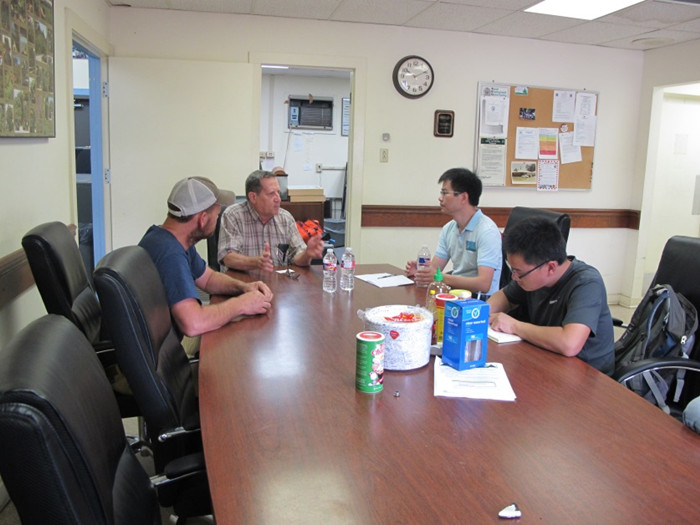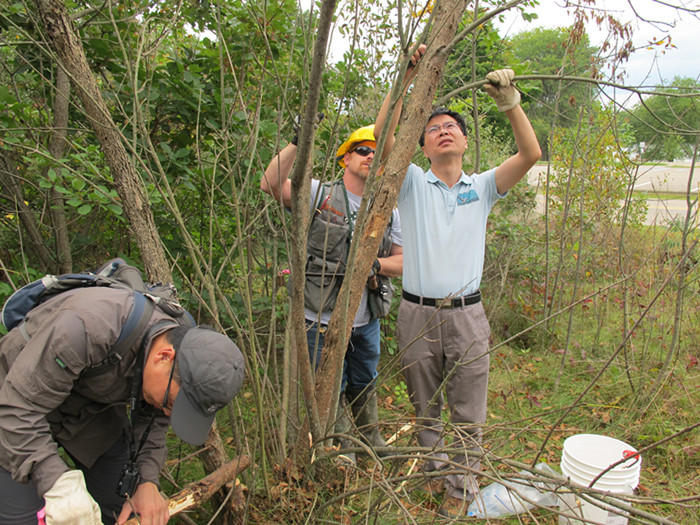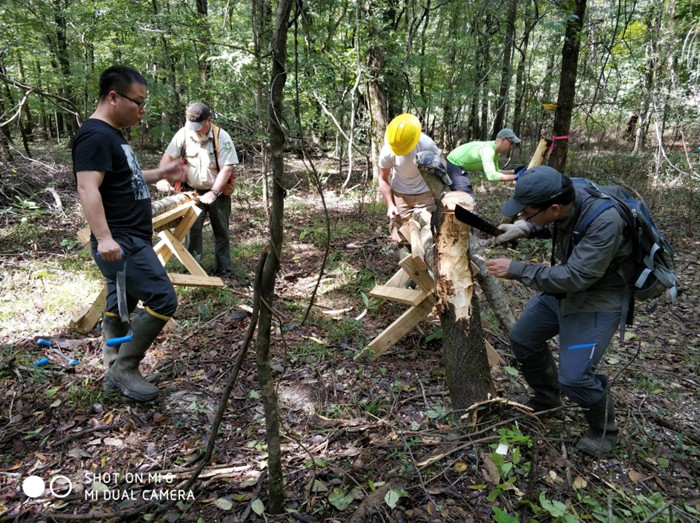
Discussions between Wang Xiaoyi and researchers in South America experimental station of U.S. Forest Service, United States Department of Agriculture

Examination to the impacts of Agrilus planipennis in East Lansing

Inspection of specimen of flatheaded borer in South America experimental station of U.S. Forest Service, United States Department of Agriculture

Collection of larva of Agrilus planipennis in wilderness
Wang Xiaoyi, chief expert on natural enemy insect and biological prevention and control as well as two colleagues from RIFEEP visited America for investigation on formation mechanism of trunk borer spreading in South America and its biological prevention and control from 20th to 29th September..
During the stay in the U.S., group headed by Wang Xiaoyi took the visit to North America experimental station of U.S. Forest Service, United States Department of Agriculture (USDA) in East Lansing, Michigan. Agrilus planipennis invade this area earliest, causing adverse impact. Lake Park and Sleepy hollow are two sites chosen by the group for investigation of pests, inspection of local impacts and larva instar and the collection of experimental samples. After the investigation, the group visited the laboratory of North America experimental station and Breeding Center for natural enemy of Agrilus planipennis of USDA, learning how to feed Agrilus planipennis and its natural enemy.
When visited the South Experimental Station of USDA in Alexandria, Louisiana, visitors undertook discussion with researchers of the station on the spreading, impact, investigation and control and prevention of Agrilus planipennis. Wang Xiaoyi suggested that both sides shall maintain communications in monitoring and prevention of forest pests, which was accepted by the researchers of the station.
Agricultural Research Service (ARS) in Newark, Nevada was the last stop of their tour. Wang Xiaoyi group met with Dr. Kim A. Hoelmer, principle of ARS, and Dr. DuanJian Jun for in-depth discussion on the collaboration in multiple fields including the investigation of natural enemy of Anoplophora glabripennis and Lycorma delicatula, biological prevention and control of Lycorma delicatula and Halyomorpha halys and research on formation mechanism of Agrilus planipennis spreading in South America. (Cao Liangming / RIFEEP)
